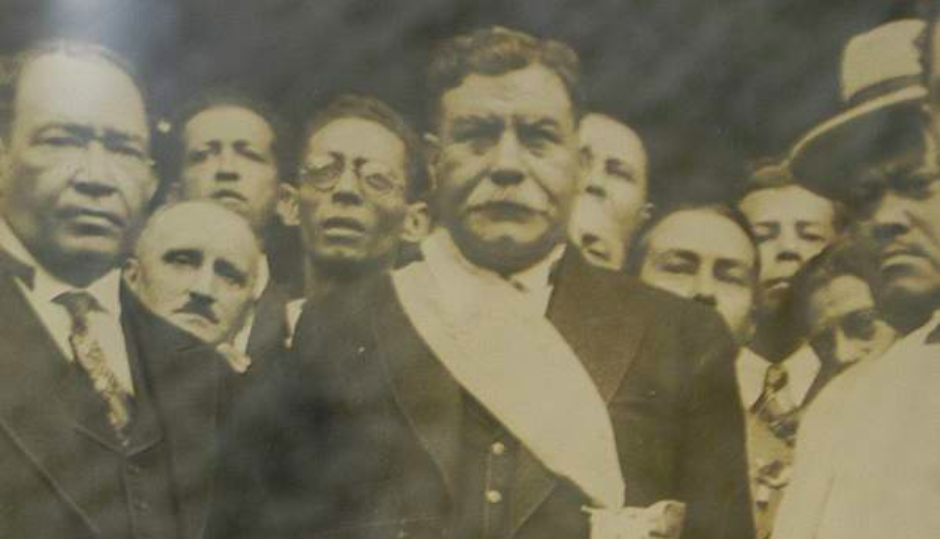
Arguably the most important Honduran political figure of the twentieth century, Tiburcio Carías Andino was a brutal dictator of Honduras from 1933-1949, a longer period of time than any other president in Honduras’ history. As a strong caudillo, the Congress allowed him to extend his place in office since he brought stability and order to Honduras, which had been prone to instability and frequent revolution. During his first few months in office, he cleaned up corruption, built a larger and stronger military, and attempted to stimulate the economy since it was in shambles. While taking office was risky due to the instability of Honduras, Carías defied Honduran expectations and brought stabilization to the country in a short period of time.
Referred to as a “banana republic,” Honduras was controlled by United States’ business interests during the first half of the twentieth century. Therefore, it is important to take in account the relationship between Carías and the United States during this time. With that being said, Carías felt the need to secure the favor of American policymakers in order to assure the support he needed to provide Honduras with stability and development. He maintained this effort by initiating a public relations campaign, showing himself as an ally of the United States. Carías even rewrote the Honduras constitution to allow him to stay in office, which was not looked down upon since his marketing strategies had been so successful. After observing decades of instability in Honduras, the United States government could see that Carías created positive change in the country.
While Honduras was stable as a country, it cannot be overlooked that Carías was a brutal dictator. He imprisoned, exiled and harassed those who were against him, committing human rights abuse. The United States government was aware of these tendencies, but overlooked them and continued to support him, even giving him the resources he needed to go against members of his opposition. It appeared that the United States only cared that Honduras was stable, rather than caring about how Carías achieved it. Since this occurred during the era of the Good Neighbor policy, the United States was focused on the stability of Honduras to keep European economic competition out so the country would continue to depend on American trade. This shows the power of one person can appear to positively change a country, however without taking account of the people’s needs, representing the dangers of a dictatorship.
Works Cited
Fenner, A. (2014). Puppet Dictator in the Banana Republic? Re-examining Honduran–American Relations in the Era of Tiburcio Carías Andino, 1933–1938. Diplomacy & Statecraft, 25(4), 613–629. https://doi.org/10.1080/09592296.2014.967126
Llanza. (2014). Tiburcio Carías Andino y la dictadura de 16 años. Retrieved from https://www.laprensa.hn/especiales/personajes/inicio/750374-273/tiburcio-carías-andino-y-la-dictadura-de-16-años
